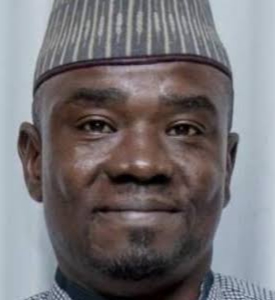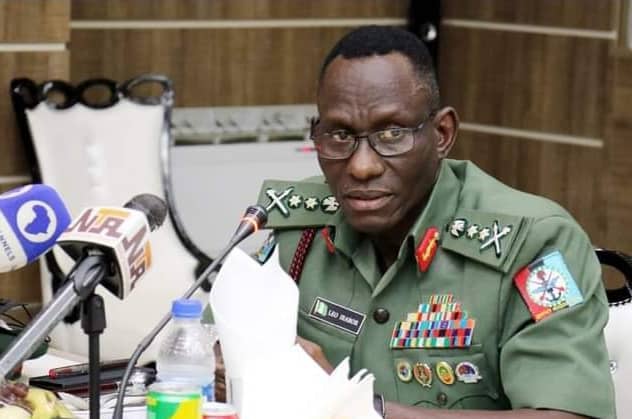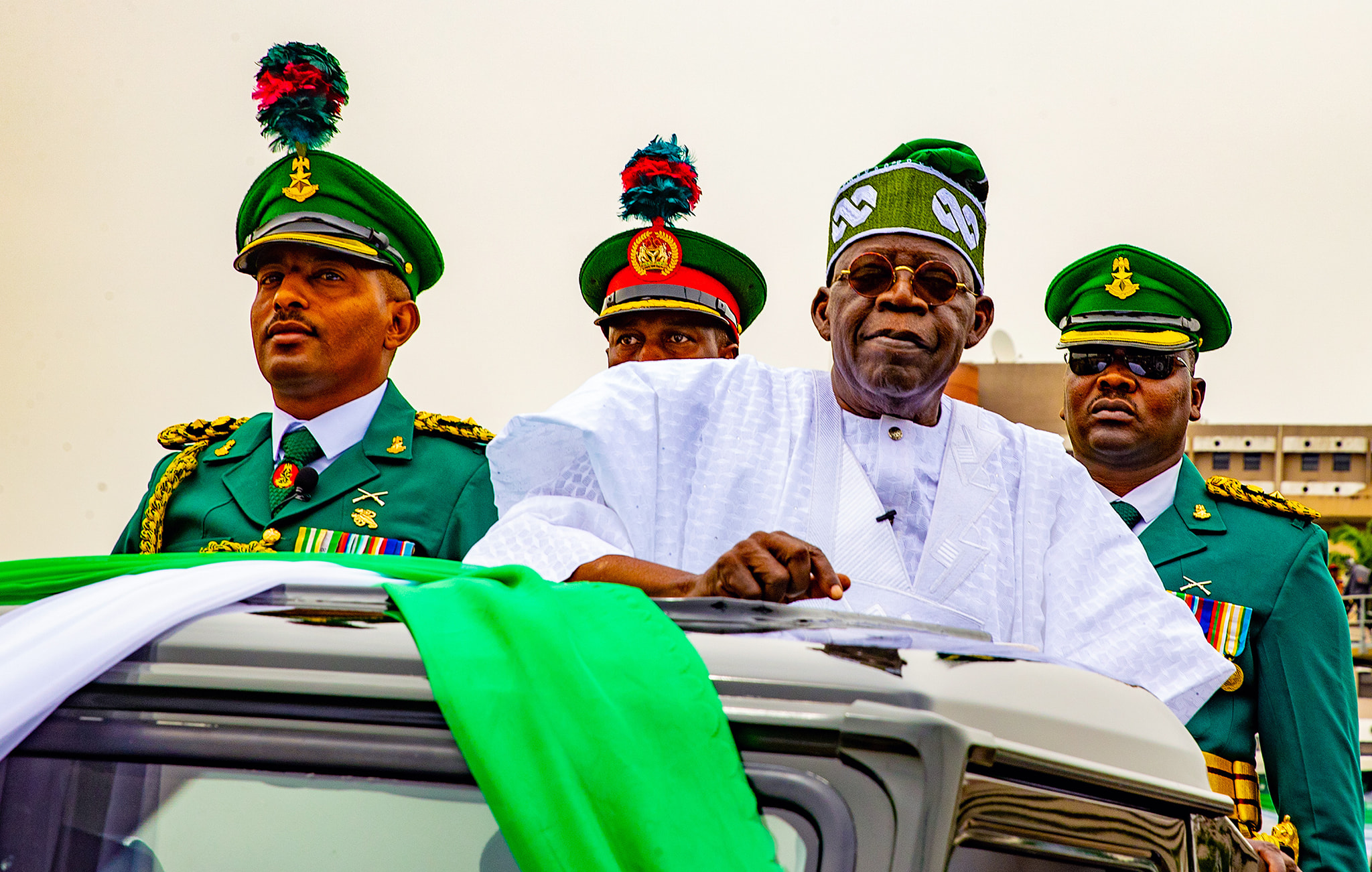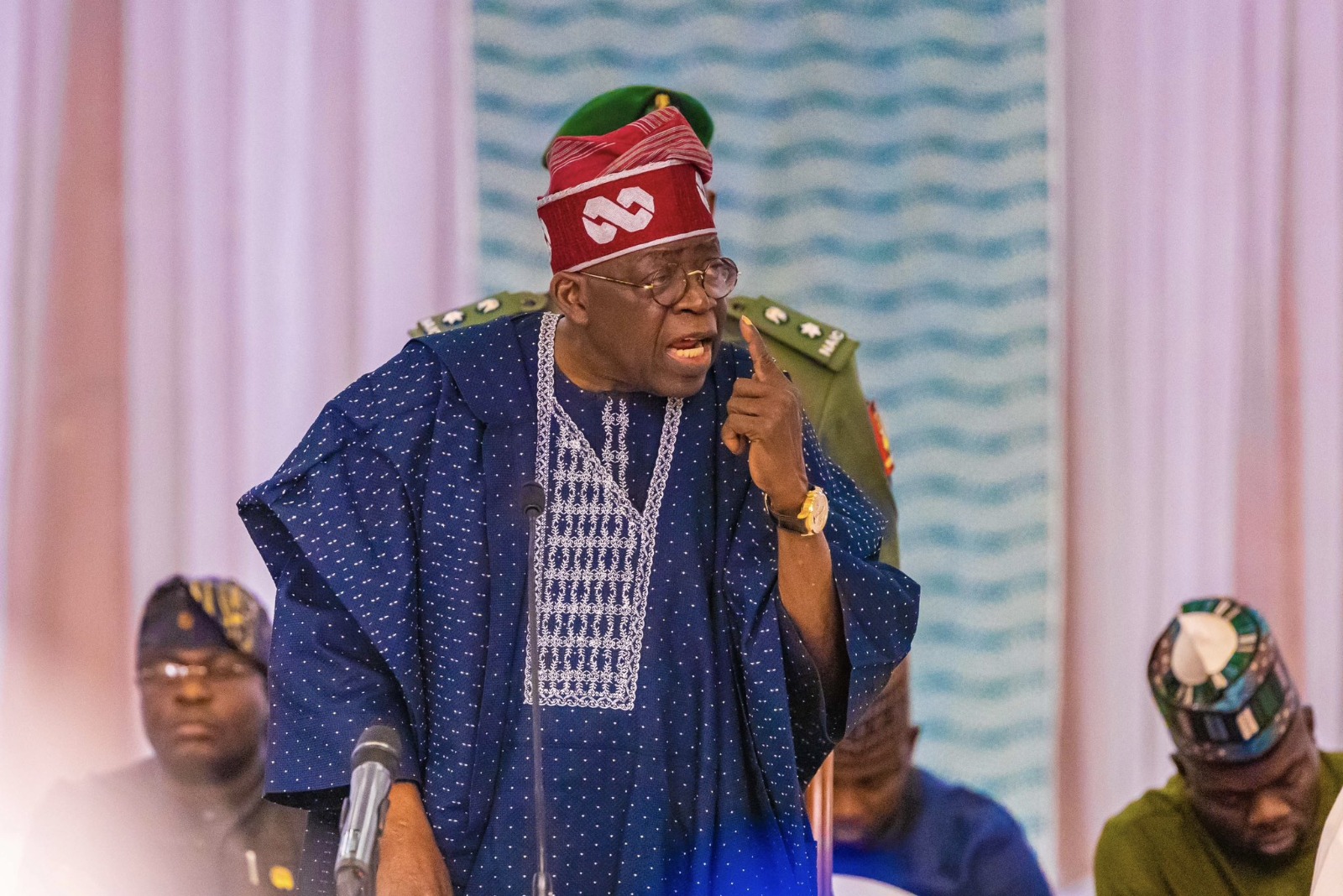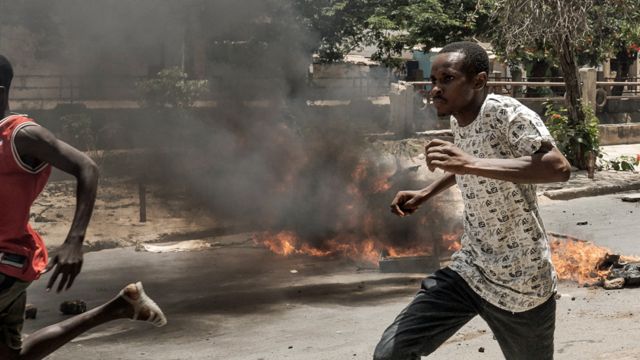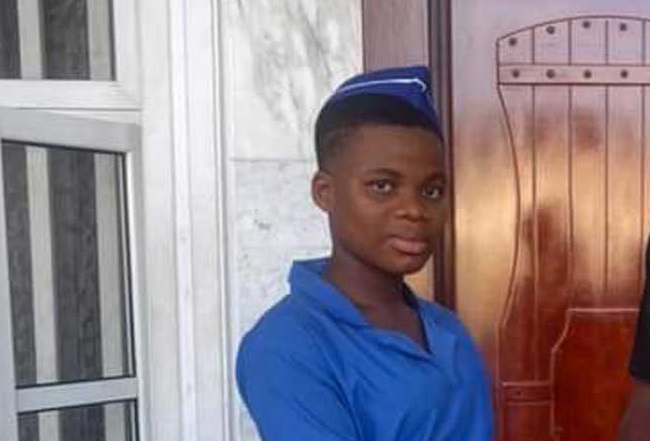On Tuesday, August 9, 2022, senior editors and top journalists attended a media parley with the then Chief of Defence Staff (CDS), General Lucky Irabor.
Weeks earlier, devastating terrorist activities were widely reported including the attack on St. Francis Catholic Church in Owo, Ondo state; assault on a presidential convoy in Katsina state; invasion of the Kuje Prison in Abuja; the deadly ambush of senior police officers; and the alleged killing of civilians (collateral damage) during military operations.
The CDS used the opportunity to solicit the cooperation of society, saying the criminals (terrorists) want to stoke fear and promote resentment to such a level that everyone will not want to leave their homes. This is the strategy which, if we do not take time, will become part and parcel of our daily lives.
In my presentation on ‘Media Analysis of Defence Security Sector Coverage and Fact-checking Conflict-sensitive Reporting’, as the guest speaker, I pointed out clearly that while a lot of media houses reported scenes accurately, others not only exaggerated but published one-sided reports without reflecting the realities as well as evident security sector accomplishments.
Advertisement
I also alluded to the fact that some media organisations do not question the authenticity of statements from terrorists in their reporting, yet cast headlines which doubt official sources and are framed in cynical ways, such as “Military claims…”, “Unconfirmed reports on troops victory…”, etc.
The then director of defence information, Major General Jimmy Akpor, urged the editors to remain partners in progress with the armed forces by ensuring that their organisations are insulated from being used by terrorists to plant fear in the minds of Nigerians.
The facilitator, Barrister Charles Odenigbo of The Media Today International (TMT), said the interaction was planned in the spirit of openness in order to elicit a practical and robust review of reportage of the defence and security sector. He urged the media to continue to work with the military in the task of national security and nation-building.
Advertisement
It was quite gratifying that the spokesperson of the Nigerian Air Force (NAF), Air Commodore Edward Gabkwet, led a session that showed declassified video footage of airstrikes on camps and hideouts of bandits and terrorists across the country.
The editors marvelled at how Nigerian troops had eliminated scores of fleeing terrorists, especially following the rather daring attacks on the presidential convoy and the ambush that led to the death of Assistant Commissioner of Police Aminu Inuwa in Katsina, among other similar operations revealed in the videos.
The media parley with General Irabor was conceptualised as a way of building sustainable trust and confidence in military-media relations, towards pursuing the common causes of freedom, liberty and national security.
Immediately after the engagement, a senior editor jokingly asked the then Chief of Defence Intelligence, Major General Samuel Adebayo, who also contributed at the event, if the interface was another form of psychological operation.
Advertisement
Adebayo, a typical spymaster who would have wished to remain unseen and unheard, calmly responded that Psychological Operations (PSYOP) or Psychological Warfare (PSYWAR) are mostly unannounced but noticed or felt. He added that when deployed, the approaches are targeted at winning the hearts and minds of specific audiences on the field.
Beyond combat operations in creating a security bulwark for Nigeria, CDS Irabor is remarkably noted for the result-driven way in which he had piloted the affairs of the military in building synergies, partnerships and collaborations across the military services and relevant stakeholders.
During the short-lived tenure of the late Army Chief, Lt. General Attahiru, the Nigerian Army, the lead agency on counterterrorism operations, was very visible in the media in terms of profiling the efforts and accomplishments of the troops. Sadly, he lost his life in a plane crash only a few weeks after the death of the most wanted Boko Haram leader, Abubakar Shekau.
The immediate past Chief of Army Staff, Lt. General Faruk Yahaya; the former Chief of Air Staff, Air Marshal Isiaka Amao; and the previous Chief of Naval Staff, Vice Admiral Awwal Zubairu Gambo all gave fillip to joint counter-insurgency operations, the updates of which were centralised under the Directorate of Military Operation (DMO). The Directorate of Defence Information (DDI) retained its conventional focus on the routine events around Defence Headquarters.
Advertisement
Nevertheless, the service chiefs concentrated their media interface on the publicity around ceremonial outings, civil-military relations (CMR) commitments, and corporate social responsibility (CSR) efforts. Some of them occasionally facilitated third-party media narratives that enabled accurate, unbiased and responsible reports.
The soft approach programmes of the service chiefs were largely in the realm of Psyops that ensured safety, built community trust and engendered peacebuilding. The Psyops were aimed at influencing the state of mind of target audiences through non-combative means such as the effective deployment of selective messages, messengers, and mediums and also the measurement of impacts.
Advertisement
Circumstances that led to the death of Boko Haram leader Shekau, the surrender of over 50,000 Boko Haram members, alongside the rescue and release of abducted citizens among others, were mostly undertaken through psychological operations.
Apart from the surrender of repentant terrorists and bandits, agreements were also signed with previously undesirable elements to guarantee peace and development in insurgency-prone axes. It was recently revealed that the cessation of abduction incidents and other violent crimes perpetrated by terrorist groups on the Abuja-Kaduna highway was due to the efforts of a security panel raised by General Irabor.
Advertisement
Although insecurity is yet to be over in the country, the new National Security Adviser, Mallam Nuhu Ribadu, and the new service chiefs would very likely deploy newer forms of kinetic and non-kinetic approaches to address the challenges across the various flashpoints and areas.
The new Chief of Defence Staff, Major General Chris Musa, and the Chief of Army Staff, Major General Taoreed Lagbaja, demonstrated unique leadership skills as the theatre commander (northeast) and the general officer commanding the army division (northwest), respectively. While one ensured the surrender of thousands of repentant terrorists, the other led troops to the field to eliminate bandits.
Advertisement
It is hoped that the new Chief of Naval Staff, Rear Admiral E. A. Ogalla; the Chief of Air Staff, Air Vice Marshal Hassan Bala Abubakar; and the Chief of Defence Intelligence, Major General E. P. A. Undiandeye will join efforts in bridging the usual fragmentation among the services and relevant stakeholders in joint operations, by sustaining the holistic and collaborative mechanism being put in place.
The Forum of Spokespersons of Security and Response Agencies (FOSSRA), whose secretariat is at the Centre for Crisis Communication (CCC), also needs to be reactivated towards enabling unified information-sharing processes and procedures, while keeping the public adequately educated and informed.
The well-lauded successes attained by General Irabor and the service chiefs under the Muhammadu Buhari administration was the deft utilisation of psychological operations that did not involve deaths, but still led to huge numbers of those who got rescued from the vice-grip of insurgents and bandits. Also, many terrorists and other social deviants were convinced to repent and surrender before their admission into rehabilitation programmes.
To a reasonable extent, the former chiefs could be considered as the most cooperative so far, making them accomplish highly significant national security tasks through inter-agency collaborations and synergy in combat operations and strategic communication. Their legacy is a base for an enduring approach to military strategy and security operations.
Shuaib is the author of ‘An Encounter with the Spymaster’ and ‘Crisis Communication Strategies’ and can be reached at [email protected]
Views expressed by contributors are strictly personal and not of TheCable.
Add a comment
